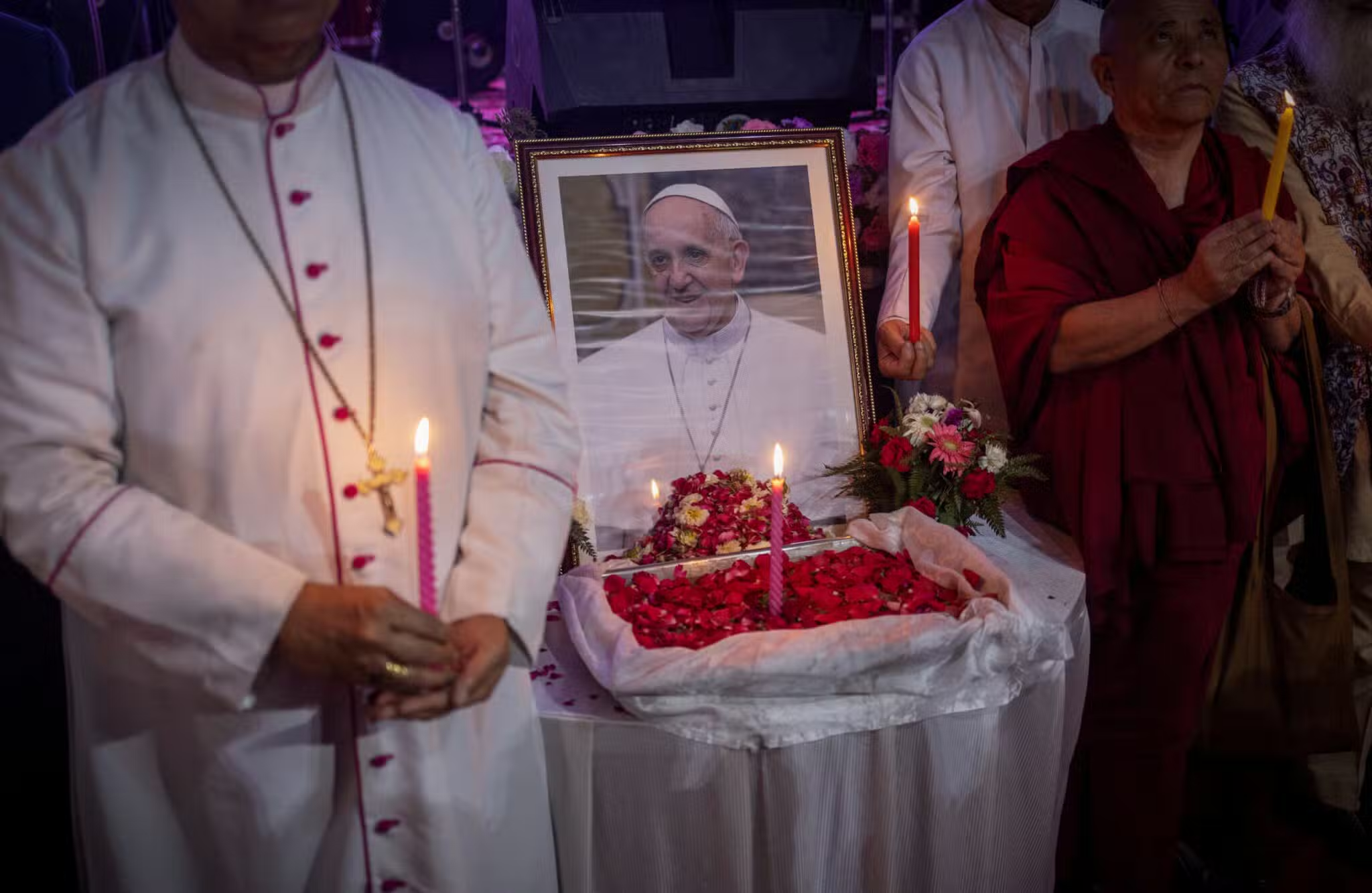This author shows how you can use this well-known prayer as a guide to inner healing and loving yourself.
Lord, make me an instrument of your peace;
Where there is hatred, let me sow love;
Where there is injury, pardon;
Where there is doubt, faith;
Where there is despair, hope;
Where there is darkness, light;
And where there is sadness, joy.
O Divine Master,
Grant that I may not so much seek
To be consoled, as to console;
To be understood, as to understand;
To be loved, as to love;
For it is in giving that we receive,
It is in pardoning that we are pardoned,
And it is in dying that we are born to Eternal Life.
Amen.
The Prayer of St. Francis may be one of the best-known prayers even among those who rarely pray or even don’t believe. It is often read in Twelve Step meetings. The hymn version found its way into the Broadway musical Come from Away. It is rightly viewed as a road map for spiritual growth and for how we should treat one another.
As I read this prayer, though, I also experience it as a road map for learning how to treat myself. All world religions have in their sacred texts or doctrines the idea that we are commanded to love our neighbor as ourselves. While we hear much about how to love our neighbor, we hear less about how to learn to love ourselves. The Prayer of St. Francis can be a guide.
Most of us on our spiritual and psychological journeys are confronted by significant inner spiritual and psychological struggles. We may even reach a point where, in one way or another, we consider giving up.
The goal of living St. Francis’ prayer is given to us in the first line: “Make me an instrument of your peace.” To be an agent of peace, we need to first find inner peace or what the 12 Steppers refer to as serenity. When we consider whether we are at peace, many of us encounter inner chaos instead. The prayer notes that chaos then points the direction to peace.
‘Where there is hatred, let me sow love’
Many of us may recoil from the thought that we might hate ourselves, since hate is such a strong word. Yet how often do you judge yourself? How often do you give yourself credit for something? Most of us judge ourselves, frequently with harshness. That judging voice can be subtle, yet it is there and we listen to it.
I tolerate things I say to myself when I might be indignant if someone else says those things. We also tend to speak to ourselves much differently than we do to others. If I ask, “How do you talk to someone you love?” you might answer, “With gentleness and respect.” Yet how often do you speak to yourself with harshness and disrespect? I don’t usually call others stupid but I use that word when talking to myself. The Prayer of St. Francis asks us to speak to ourselves the way we try to speak to others. The prayer invites us to heal from self-hatred.
‘Where there is injury, pardon’
When I’ve done workshops in the past, I would ask, “How many of you harbor a resentment against someone?” I, of course, would raise my own hand. Amazingly, some would not raise their hands. Perhaps they didn’t want to admit this oh-so-human tendency to resent.
I believe resentments are the spiritual equivalent of cancer. Left untreated, they spread and poison our entire spiritual world. Perhaps you have known people who always seem angry and bitter; often the culprit is resentment.
Some years ago, a friend gently suggested an exercise for me. He told me to picture myself on a shore or dock watching a ship approaching. As the ship neared, I realized I knew people on this ship, for the suggestion was to see all whom I was harboring a resentment. I decided to write down the names of those getting off the ship, thinking I’d see two or three people, but I stopped writing after filling two columns on a legal pad. And there were still people getting off the ship! I was able to let go of some resentments immediately, while others I had to work at.
The solution to resentments is forgiveness. I am not expected to like anyone on my list; I am simply releasing them and regaining the power I had been giving to them. As others have written, the person who benefits most from forgiving is the one who forgives.
‘Where there is doubt, faith’
I have struggled with spiritual doubts most of my life, starting at 5 years old when I tried to figure out why a loving God had let my two sisters die. Many years later, I still don’t have a clear answer. Along the way, I have judged myself for having these doubts. Ironically, the path to faith for some of us may lead through doubts.
A doubt can be viewed simply as an acknowledgment that I don’t know all there is to know within the domain of spirit. For some of us, facing a doubt can open the door to another experience of faith. The doubt stands in opposition to the dangerous assumption that I know all there is to know about God. For example, I grew up believing that I could only find God in church. When I questioned that, it opened the door to a richer experience of God in places such as Yosemite or the Guadalupe Mountains or in the presence of a painting by Van Gogh or Edward Hopper.
‘Where there is despair, hope’
You may have known someone who wanted to give up, even literally. You may have reached out to that person, offering solutions or at least giving the gift of listening. When we are with someone in despair, we want more than anything to help them find hope. I long believed that my main purpose in my years as a psychotherapist was not to help people find answers and solutions but to help them find hope. I didn’t always succeed in those efforts.
How easy it is to fall into discouragement and even despair! Have you ever felt like God wasn’t listening to you? That any solutions you might attempt were doomed to failure? That prayer is a waste of time? All these thoughts are on the edge of despair.
Have I ever felt despair? Absolutely! I am, after all, a recovering addict, and despair is a way of life for addicts. Thankfully, I was able to be open to the gift of hope. But first I had to accept that my own efforts at hope had failed. Thus, when we are in the depths of despair, we need to be open to the possibility of hope and to whatever action grows out of that hope.
‘Where there is darkness, light’
Light is a powerful spiritual theme. It represents enlightenment. It represents wisdom. It represents serenity. Inner darkness can refer to depression. It can refer to sinfulness. It can refer to that within us that needs to be redeemed. To find our own inner light, we must often first walk through the darkness.
Psychiatrist Carl Jung referred to the Shadow as a powerful part of our psyches, consisting of all those qualities we deny. It is the lust, the violence, the controlling—the qualities we fear and avoid. In my own Shadow journey, in addition to addiction, I have found rigidity and harshness amid the darkness. We are called to shed light on that darkness, to redeem it not through denial but through acceptance. In time, I came to see that the rigidity I denied offered a degree of self-discipline that I otherwise lacked. And hidden within the darkness of addiction was the light of sobriety.
Have you ever heard loved ones putting themselves down? We want to cry out, “If only you could see yourself as I do!” We want to shed the light of love on their own time of darkness. Yet when we are in need of that same loving light, we instead slip into self-judgment and avoidance of our own inner darkness.
As we take this inner journey of healing, we are better prepared to live out the second half of the Prayer of St. Francis, which gives further guidance for dealing with others. But in its own way, it challenges us not to be dependent upon others in meeting some of our spiritual and psychological needs.
‘To be consoled, as to console’
Most addicts I know, including myself, would reach outside ourselves for consolation. I often turned to the great god alcohol for the illusion of consolation. Others can turn to drugs or sexual encounters or the gambling table for the short-term illusion of consolation.
It becomes important to learn where and how to find consolation in a healthy manner. Thus, I may need to learn how to pray and meditate. Introvert and stoic that I am, I have had to learn the power of sharing my pain. To be able to console others, I need to know how to find consolation.
‘To be understood, as to understand’
The key to understanding may have to do with an absence of judgment and a degree of acceptance. If I can develop a degree of understanding of myself, then my blind spots will be less likely to interfere with my wish to understand someone else. I do not know how other people think or feel; I can only approximate their situation by awareness and understanding of my own.
To be understanding also involves a capacity to listen. Again, my capacity to listen to others may be compromised if I am unwilling or unable to listen to myself. My own internal avoidance blocks me from hearing others.
At times, being out of touch with my need to intervene in some creative way has interfered with my capacity to listen. I recall one woman who came in and briefly told me of her dilemma. I immediately spun into an “explanation” of her problem and what I was sure to be the solution. My own unheard need to be “helpful” blocked my ability to listen. To her credit, she gently raised her hand and said, “Will you please be quiet and just listen to me?” She was right. Because I was listening to my own need to be “helpful,” I was not listening to her.
‘To be loved, as to love’
Again, we sometimes depend upon others to give us a sense of value, all the while avoiding the challenge of learning to love ourselves. We tell ourselves: “If only someone loved me. That would make me lovable.” That desperate need in fact gets in the way of loving relationships, since it gives rise to neediness and dependence. If I learn to love myself, then I am in a better place to give and receive love in a healthy manner.
‘And it is in dying that we are born’
The last line of St. Francis’ prayer presents us with one of the paradoxes of the spiritual journey. There are certain inner themes to which we must die if we are to grow. We must die to our self-judgment. We must die to our perfectionism. We must die to our need for control. We must even die to our need to have all the spiritual answers.
Many of us seek what is called a “spiritual awakening.” Perhaps we can embrace the Prayer of St. Francis as a doorway to that awakening.









4 thoughts on “A New Understanding of the Prayer of St. Francis ”
Rich,
I found this particularly moving, insightful and comforting.
Thank you, Richard! I really needed this!
God bless you!
Thank you for this. This understanding is really helpful at this time in my life. Also please know that I’m very grateful for the hope you provided during our work together so many years ago, a way forward…..
This is beautiful and timely, not just for me but also for our world. Thank you!
Comments are closed.